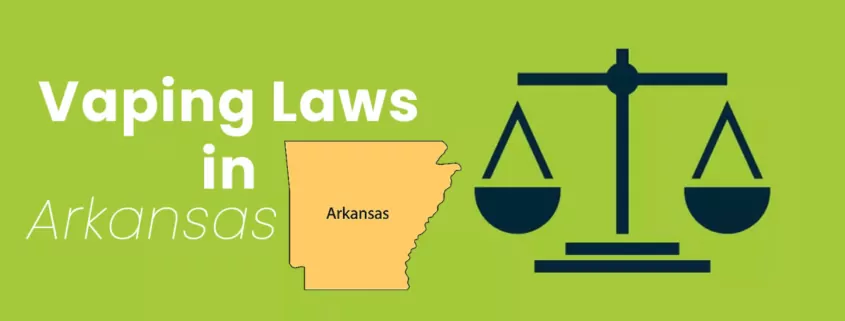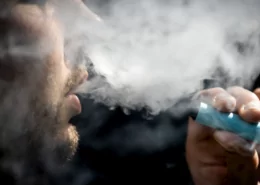Vaping Laws in Arkansas – Is it Legal to Vape in Arkansas?
Updated May / 2025
Arkansas has emerged as a state with some of the most distinctive and stringent vaping regulations in the United States. If you’re a resident, retailer, or someone just curious about the rules, understanding the intricate web of laws governing e-cigarettes, vape pens, and other electronic nicotine delivery systems (ENDS) is crucial. As of mid-2025, the regulatory landscape in the Natural State is marked by a firm 21+ age limit, significant new manufacturer and product requirements under Act 590, and a unique personal possession ban for non-compliant items.
This guide provides an in-depth look at Arkansas’s current vaping laws, helping you understand what’s legal, what’s changing, and what it means for you.
The Legal Framework of Vaping Laws in Arkansas
At the core of Arkansas’s approach to vaping is a clear focus on preventing youth access, underpinned by federal mandates and specific state definitions.
Minimum Legal Sales Age (MLSA): Firmly 21, With Specific Exemptions
Aligning with the federal “Tobacco 21” law enacted in December 2019, the minimum age to purchase, possess, or use any tobacco product, including all e-cigarettes and vapor products, in Arkansas is 21 years old. This is a critical piece of legislation aimed at curbing youth initiation. Selling, giving, or otherwise furnishing a vapor product to anyone under 21 is classified as a petty offense, carrying potential fines for retailers.
However, Arkansas law, specifically Act 580 of 2019, carved out specific, limited exemptions to this 21+ rule:
- Individuals who had already turned 19 years old by December 31, 2019, were grandfathered in and could continue to legally purchase and possess these products.
- Active-duty military personnel aged 18 or older are also exempt, provided they present valid military identification.
For individuals under 21 (who do not meet these narrow exemptions) caught attempting to purchase or found in possession of vaping products, penalties can include fines (e.g., up to $100 for a first offense, increasing for subsequent violations) and potentially mandatory participation in nicotine education programs or community service. Using a fake ID to procure these products is also a petty crime, potentially leading to fines up to $500.
Defining “Vapor Product” and “E-Liquid” in Arkansas
Arkansas law provides precise definitions to ensure clarity. Under Ark. Code Ann. § 26-57-203(34) (2024), a “vapor product” is defined as a noncombustible product containing nicotine or other substances (derived from tobacco or not) that employs a mechanical heating element, battery, or electronic circuit to create a vapor from a solution or other substance. This includes e-cigarettes, e-cigars, e-pipes, vape pens, and any component, part, or accessory of such a device, regardless of whether it is sold separately. The term also explicitly includes any liquid or other substance containing nicotine that is intended to be used with or in such a device, even if sold separately.
“E-liquid” is further defined as a substance that may or may not contain nicotine, is intended to be vaporized and inhaled using a vapor product, and may include propylene glycol, vegetable glycerin, and flavorings. Notably, Arkansas law distinguishes these vapor products from the statutory definition of “tobacco products,” creating a separate regulatory pathway, although many restrictions mirror those for traditional tobacco.

ACT 590: PMTA Registry and Possession Ban in Arkansas
The most significant and controversial recent development in Arkansas’s vaping regulation is Act 590 (formerly Senate Bill 252), signed into law in April 2025. This legislation establishes a state-managed directory of legal vaping products based on federal FDA Premarket Tobacco Product Application (PMTA) status and, uniquely, criminalizes the personal possession of unlisted products.
The PMTA-Based Product Directory
Act 590 mandates that for a vaping product to be legally sold in Arkansas, manufacturers must certify to the Arkansas Tobacco Control (ATC) that their product meets specific criteria tied to the FDA’s PMTA process. To qualify for inclusion in the state’s official directory, a product must:
- Have been commercially available in the U.S. market on or before August 8, 2016.
- Have had a PMTA submitted to the FDA by the deadline of September 8, 2020.
- Meet one of the following FDA statuses:
- Has received FDA marketing authorization (a Marketing Granted Order – MGO).
- Remains under active FDA review.
- Had a Marketing Denial Order (MDO) issued but that order has been stayed or enjoined by a federal court or the FDA.
The deadline for manufacturers to submit their products for inclusion in this directory is September 1, 2025. The ATC is then tasked with publishing this directory on or after November 1, 2025. After this date, it will be illegal to sell any vaping product not listed in the official state directory.
Certain products are exempt from these registration requirements, notably open-system vaping devices (like traditional mods with replaceable batteries) when sold without e-liquid. However, the precise status of bottled e-liquids sold separately for these open systems has been an area of some ambiguity, with industry stakeholders awaiting clearer guidance from Arkansas Tobacco Control.
The Personal Possession Ban
Perhaps the most contentious provision of Act 590 is the criminalization of personal possession of unlisted vaping products. This means that after the law is fully enforced (expected from January 1, 2026, for possession), individuals found knowingly possessing vaping devices or e-liquids not on the state’s approved directory could face fines (e.g., $250 for a first-time offense) and product confiscation. This makes Arkansas one of only two U.S. states (along with Louisiana) to implement such a broad nicotine product possession ban, drawing comparisons to highly restrictive regimes in countries like Singapore or Qatar.
Where Vaping is Prohibited in Arkansas
Arkansas law restricts vaping in numerous public and institutional settings, primarily aimed at protecting non-users from secondhand aerosol exposure and preventing youth normalization.
- Clean Indoor Air Act Application: The Arkansas Clean Indoor Air Act of 2006, which prohibits smoking in most enclosed public places and workplaces, has been interpreted or amended to include e-cigarettes and vapor devices. This generally means vaping is not allowed where smoking isn’t.
- Educational Institutions: Vaping is strictly prohibited on all public school properties (K-12), at off-campus school-sponsored events, in childcare facilities, and on school vehicles. This ban also extends to the campuses of state-supported institutions of higher education.
- Healthcare Facilities: Vaping is generally banned within healthcare settings.
- State Parks: Prohibited within 25 feet of state park buildings or enclosed structures.
- Correctional Facilities: Visitors are typically prohibited from bringing vaping products into community correctional facilities.
- Foster Homes: As mentioned earlier, vaping is banned in foster homes and in vehicles transporting foster children.
While these statewide rules exist, many cities and counties in Arkansas have enacted their own, often more comprehensive, local ordinances that further restrict public vaping. It is always advisable to check local signage and regulations.

Sales, Licensing, and Taxation
Retailer and Manufacturer Licensing
As of 2023, retailers selling tobacco products (which includes vapor products by definition for licensing) must obtain an annual tobacco license from the Department of Liquor Licenses and Control (DLLC). The fee for this license is around $600. Manufacturers also require permits to distribute their products within Arkansas.
Retailers must not use self-service displays for vaping products and must restrict access to vending machine sales to adult-only facilities where minors are not permitted and machines are under direct employee supervision.
Taxation of Vaping Products
Arkansas imposes an excise tax on vaping products. As of 2025, this tax is reported to be $1.00 per milliliter of e-liquid. This is a significant increase from older reported figures (e.g., $0.55/ml for nicotine e-liquid and $0.09/mg for closed cartridges), indicating a policy shift towards higher taxation to potentially discourage use and generate revenue. This tax is typically collected from distributors but is usually passed on to consumers, increasing the retail price.
Packaging and Labeling
Vaping products sold in Arkansas must be properly labeled and packaged. The packaging must include warning labels that describe the health risks associated with vaping, and the labeling must accurately describe the ingredients and nicotine content of the product. Retailers and manufacturers must comply with these requirements, and failure to do so can result in fines and other penalties.
Act 590 introduces more specific packaging restrictions aimed at reducing youth appeal. Packaging for vaping products is prohibited from featuring child-appealing characteristics such as:
- Images or words resembling breakfast cereals, cookies, or candy.
- Cartoon characters or references to video game characters.
These packaging rules supplement federal FDA labeling requirements.
Advertising Restrictions
Arkansas has restrictions on the advertising of vaping products. Retailers and manufacturers are prohibited from advertising vaping products on billboards, television, radio, and other forms of media that target children. Additionally, advertising must not contain false or misleading statements or promote the use of vaping products to children. Violating advertising restrictions can result in fines and other penalties.
Enforcement and Penalties
Enforcement of Arkansas’s vaping laws is multi-faceted. Arkansas Tobacco Control (ATC) is empowered to conduct inspections, investigations, and bring charges against violators of Act 590, including retailers, wholesalers, and manufacturers. Selling unlisted products after November 1, 2025, can result in fines and product seizures. Local law enforcement may also be involved, particularly concerning the personal possession ban, although the exact mechanisms for widespread enforcement of personal possession are still developing.
Penalties for selling to minors remain a key focus, with fines for retailers potentially reaching $5,000 for violations, alongside potential license suspension or revocation.
Ecigator is one of the well-known vape brands spun off from FM Technology Co., Ltd, it’s an ISO-certified disposable vape manufacturer for OEMs, ODMs, and OBM since 2010. The founder team comes from top firms with more than 10 years of experience in the vaping industry and has devoted thousands of hours to providing users with a better and better experience.
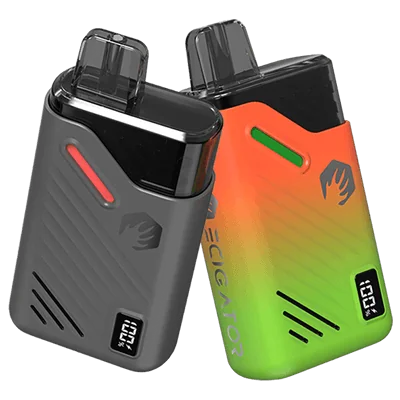
18K Disposable Pod Kit
Disposable Pod Kit – 18ml changeable pod with 650mAh rechargeable battery.
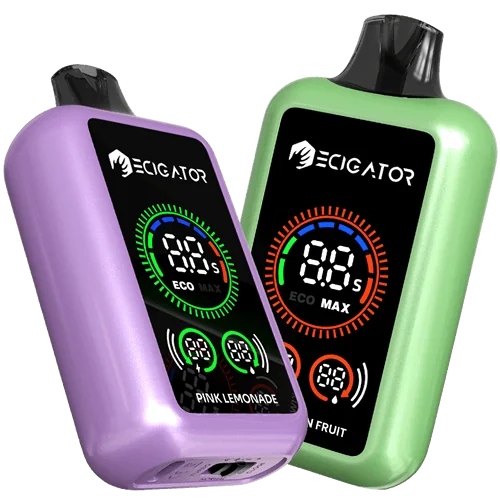
20K with Large Screen
20000 Puffs Disposable Vape with large screen. Normal and Boost working modes.
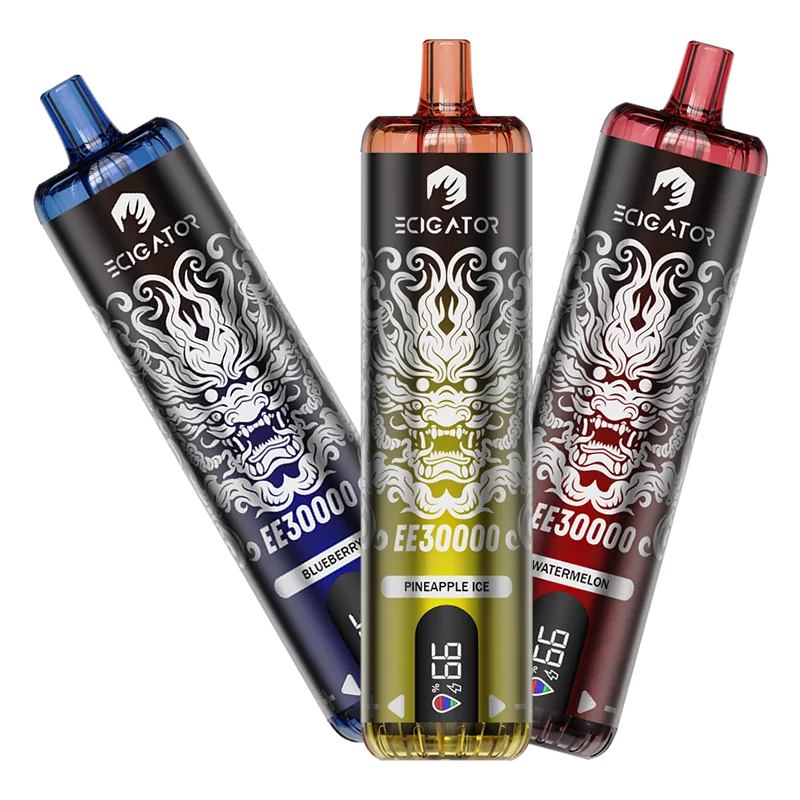
30K DTL Disposable
30K Puffs DTL(Directly to Lung) disposable vape with airflow control and screen.
Public Health Rationale and Ongoing Concerns
The driving force behind Arkansas’s stringent vaping laws, particularly Act 590, is the stated concern over a youth vaping “epidemic.” Public health advocates and officials like David Gibson, Director of Respiratory Therapy at Saline Memorial Hospital, have highlighted alarming statistics, such as a reported 1,800% increase in youth vaping since 2019 and claims that 70% of Arkansas high school students were current users. These figures have fueled the push for stricter controls.
However, the approach, especially the personal possession ban and the PMTA registry model (which critics argue favors large tobacco companies with FDA-authorized products), has been controversial. Vape shop owners and consumer advocates express concerns that these laws disproportionately harm small businesses, limit adult smokers’ access to potentially less harmful alternatives, and could drive consumers towards an unregulated black market.
Conclusion: A Highly Regulated Vaping Environment
Arkansas has undeniably established one of the most restrictive regulatory environments for vaping in the United States. The combination of a strict 21+ age limit (with limited exceptions), comprehensive public use prohibitions that vary by locality, significant taxation, and the groundbreaking Act 59—with its PMTA-based product registry and personal possession ban—creates a landscape that demands utmost diligence from all stakeholders. For consumers, this means understanding what products are legal to possess and where use is permitted. For retailers, it requires meticulous adherence to sales restrictions, licensing, and ensuring all stocked products are on the state’s approved directory. For manufacturers, navigating the certification process is now a prerequisite for market access. As these laws are fully implemented and potentially face legal challenges or further legislative adjustments, staying informed through official state resources like Arkansas Tobacco Control and the Arkansas General Assembly website will be paramount.
- Bestselling Vapes in UK After Disposable Ban: What to Stock 2025 - August 8, 2025
- Argentina Debates Stricter Vape Laws Amid Prohibition Failures - August 8, 2025
- Nigeria Advocacy Group Urged to Hike Tobacco & Vape Tax by 100% - August 8, 2025

